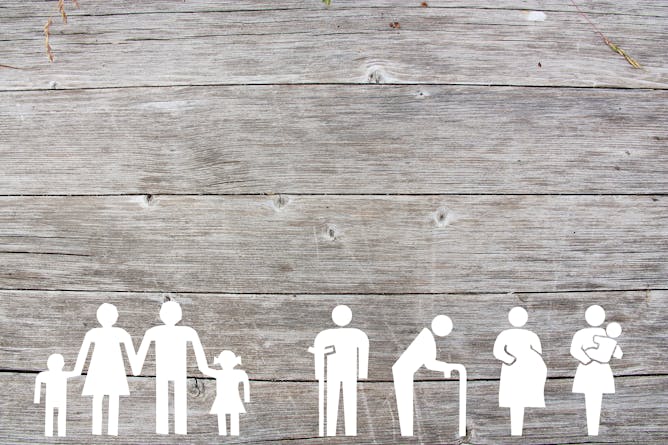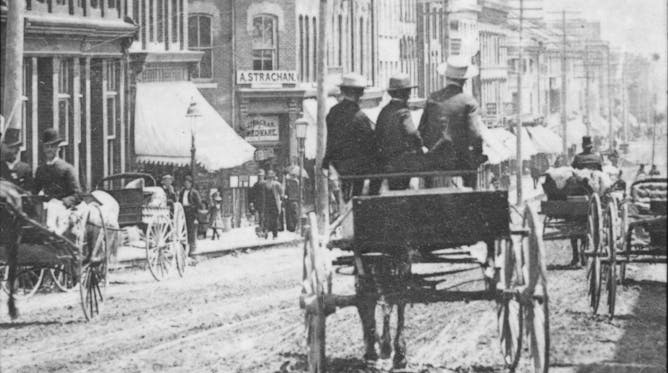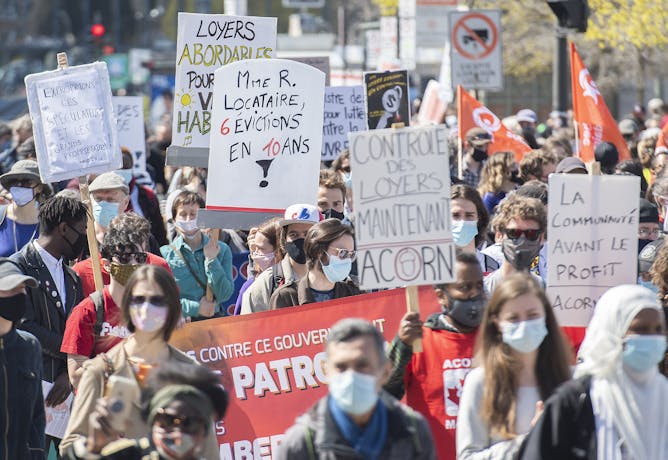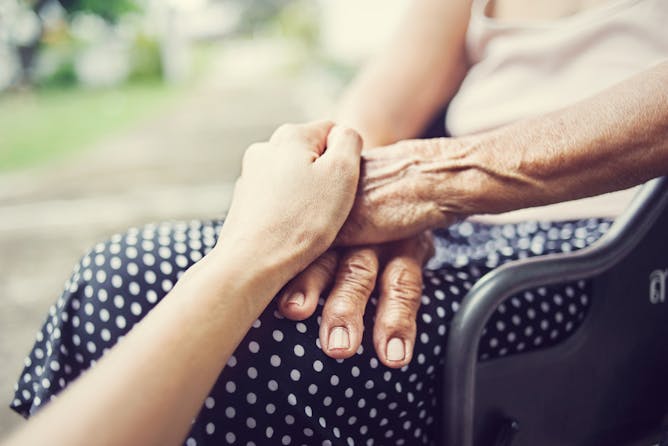|
The Conversation Weekly is our network-wide weekly podcast that brings in academics from across the globe to discuss brand new research and provide context for news headlines. I’m currently acting as co-host (covering for Gemma Ware while she’s on leave) and there, I get to chat with scholars from around the globe on their work and findings. I’ve been with The Conversation since 2018, and by taking on this temporary new role, I’m quite excited about continuing to work with researchers — this time in audio.
This week, I spoke with economist Miguel Niño-Zarazúa at the School of Oriental and African Studies in London, sociologist Erdem Yörük at Koç University in Istanbul, and political economist Christine Corlet Walker at the University of Surrey. They’re all studying various aspects of welfare systems in different parts of the world, and they described to me how different factors — including political unrest, the COVID-19 pandemic, a global recession and political conflict — were affecting the provision of welfare services in both the developed and developing world.
I’m looking forward to working on future episodes of The Conversation Weekly and learning more about academic research around the world.
Also today:
All the best.
|

|
Nehal El-Hadi
Science + Technology Editor & Co-Host of The Conversation Weekly Podcast
|
|

Welfare services are essential for a healthy economy and productive population.
(Shutterstock)
Nehal El-Hadi, The Conversation; Daniel Merino, The Conversation
Amid further strain on public funding, we ask: What’s the future of the welfare state in developed and developing nations?
|

View looking east down Princess Street, Kingston, Ont., 1890.
(Queen's University Archives)
Qanita Lilla, Queen's University, Ontario
A collaborative curatorial project is cherishing every little relational trace of Black lives found in archives in a city long defined by histories of Canadian whiteness.
|

SUVs produce more greenhouse gas emissions per kilometer than cars on average.
(Brandon Green/Unsplash)
Zoe Long, Simon Fraser University; Jonn Axsen, Simon Fraser University
New research explores why Canadians want SUVs, what they like about them and what might steer drivers towards lower-emitting cars.
|

18th-century London newspapers frequently reported on the tragic and curious accidents that befell the city’s residents.
(Shutterstock)
Leslie Ritchie, Queen's University, Ontario
News reports about accidents can deliver important moral lessons and remind us to value life.
|
La Conversation Canada
|

Des manifestants réclament davantage de logements sociaux et abordables à Montréal, le 24 avril 2021. Une des manières d'y parvenir serait grâce à la fiscalité.
La Presse canadienne/Graham Hughes
Florian Mayneris, Université du Québec à Montréal (UQAM)
Les coûts supportés par les ménages pour se loger dans les grandes villes canadiennes augmentent bien plus vite que leurs revenus. Une fiscalité innovante pourrait aider à résoudre la crise du logement.
|

Les mesures liées à la pandémie ont eu des répercussions majeures sur la santé et le bien-être des PPA qui demeurent en région rurale.
(Shutterstock)
Marie-Hélène Morin, Université du Québec à Rimouski (UQAR); Anne-Sophie Bergeron, Université du Québec à Rimouski (UQAR)
La pandémie a eu des conséquences sur la santé physique et psychologique des personnes proches aidantes qui prennent soin d’une personne demeurant en région rurale.
|
Arts
|
-
Scott Peeples, College of Charleston
Is the writer’s appeal less about the power and complexity of his prose, and more about the view of him as a perennial underdog?
|
|
Education
|
-
Naomi S. Baron, American University
People who have used AI to help with writing report a loss of pride and ownership in what they produce.
|
|
Science + Tech
|
-
Emma Sherratt, University of Adelaide
You might think of bunnies as ubiquitous, but it’s actually a relatively small group of species – and many of them are unique, little-known, and in trouble.
|
|
|
|
| |
| |
| |

|
| |
| |
| |
| |
| |
| |
|
|